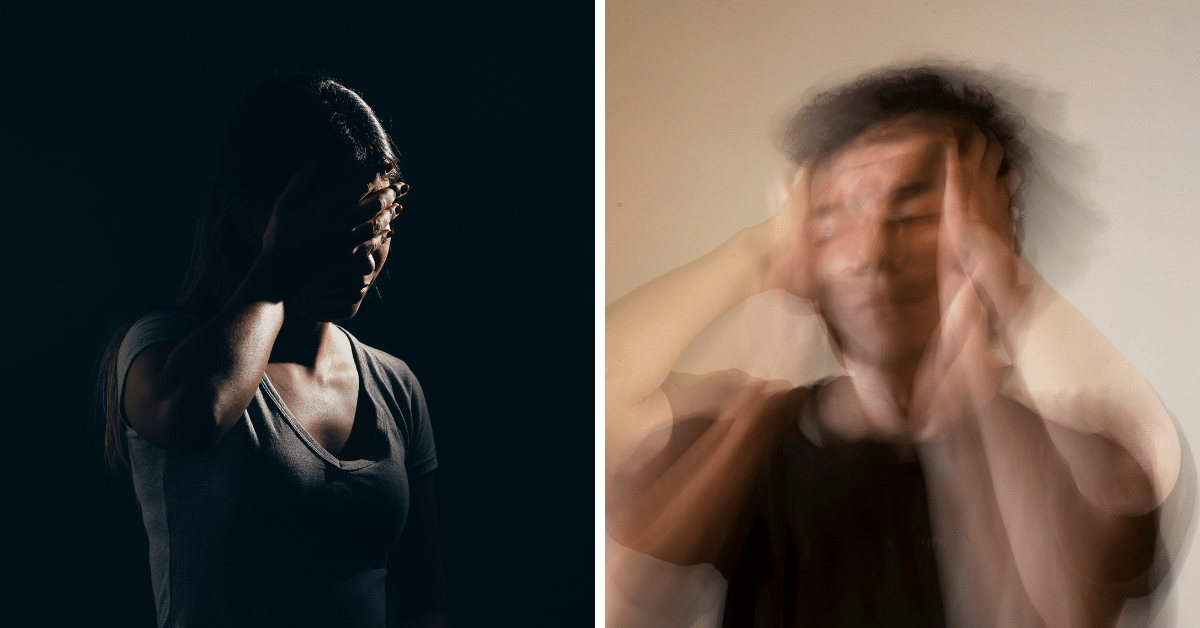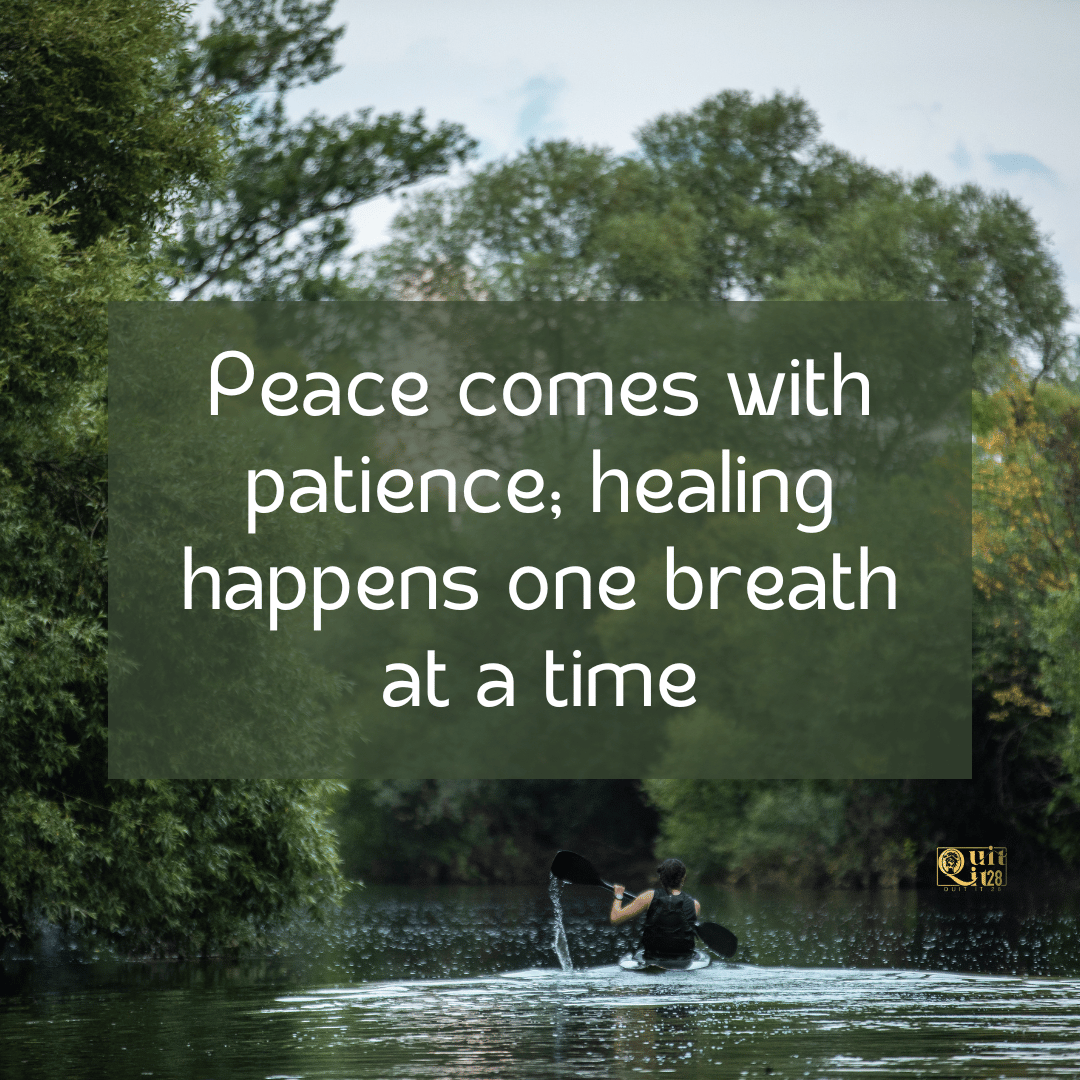- Sobriety Daily
- Posts
- Sobriety and Anxiety: Finding Calm in Recovery
Sobriety and Anxiety: Finding Calm in Recovery
Learn how to manage anxiety while staying sober.

The Sobriety Daily Newsletter
July 1 2025 | Stay Connected, Stay Sober
Millions of people struggle with anxiety every year, experiencing symptoms like a racing heart, sweaty palms, and knots in their stomach. Many individuals turn to drugs or alcohol to self-medicate, only to find that substance use worsens their anxiety over time. After treatment, managing anxiety becomes crucial for maintaining long-term sobriety.
Recovery is a journey that requires not just abstinence from substances but also emotional resilience. Anxiety can creep in during moments of stress, loneliness, or uncertainty, making sobriety feel overwhelming at times. However, learning to recognize and manage anxiety is a vital part of sustaining recovery. By developing coping skills, seeking therapy, and building a strong support system, individuals can reduce anxiety and strengthen their commitment to sobriety. This newsletter explores the connection between anxiety and recovery, its causes, and effective ways to cope.
What Is Anxiety?
Anxiety is a natural response to stress, characterized by feelings of fear, worry, or unease. While occasional anxiety is normal, persistent or excessive anxiety can interfere with daily life and recovery. For those in sobriety, anxiety may feel more intense because substances previously used to numb emotions are no longer an option. This can leave individuals feeling vulnerable and unsure how to handle overwhelming emotions.
In recovery, anxiety can manifest as generalized anxiety, panic attacks, or social anxiety. The brain, which relied on substances to regulate emotions, must now readjust to functioning without them. This adjustment period can heighten anxiety, making early sobriety particularly challenging. However, understanding that anxiety is a common part of recovery—and not a sign of failure—can help individuals approach it with patience and self-compassion.

What Causes Anxiety in Recovery?
Several factors contribute to anxiety during sobriety, including:
Neurochemical Adjustments: The brain needs time to rebalance neurotransmitters after substance use, leading to heightened stress responses.
Emotional Triggers: Past trauma, unresolved guilt, or stressful life events can resurface in recovery, triggering anxiety.
Fear of Relapse: The pressure to stay sober can create anxiety about potential setbacks.
Social and Environmental Stressors: New social dynamics, work pressures, or financial struggles can increase anxiety levels.
Coping with Anxiety in Recovery
Managing anxiety in sobriety requires a combination of self-care, professional support, and healthy coping mechanisms. Some effective strategies include:
Therapy & Counseling: Cognitive Behavioral Therapy (CBT) and mindfulness-based therapies help reframe anxious thoughts.
Medication (if needed): Under medical supervision, anti-anxiety medications can be beneficial for some individuals.
Mindfulness & Relaxation: Meditation, deep breathing exercises, and yoga can reduce stress and promote emotional balance.
Support Networks: Connecting with sober peers, sponsors, or support groups provides encouragement and accountability.
Healthy Lifestyle Choices: Regular exercise, proper nutrition, and adequate sleep improve overall mental health.
Today’s Mantra
 | “Peace comes with patience; healing happens one breath at a time” |
Sobriety News
The Phoenix is a sober-active community where recovering addicts support each other through fitness and connection. Volunteer Gavin Young, a former addict, leads Philadelphia programs, using sobriety and activity to strengthen his health, family, and others battling addiction.
Estonia is drafting new workplace intoxication testing laws to clarify how employers can legally check for alcohol/drug impairment while protecting employee privacy. The amendments, expected by late 2025, aim to balance workplace safety with data protection, as current rules lack testing guidelines despite banning on-the-job substance use.
This Fourth of July, Arkansas law enforcement is cracking down on drunk driving through the Drive Sober or Get Pulled Over campaign, targeting the holiday's deadly trend—38% of fatal crashes nationwide involve drunk drivers, with Arkansas at a staggering 48%. If you drink, hand over your keys or call a sober ride—one reckless night shouldn’t cost a life.
For over 20 years, SHIP has provided sober housing to help Treasure Valley residents escape homelessness and addiction, but rising costs and shaky funding now threaten its critical work. "We're the agency nobody knows about—until they need us," says Executive Director Ken Widick, highlighting the quiet lifeline now at risk.
Study reveals 1 in 3 Billboard country hits glorify drinking—while many artists behind them stay sober in real life. The paradox highlights how the genre balances commercial expectations with personal recovery, as sober stars like Jamey Johnson flip the script with raw songs about addiction’s toll.
Upcoming Events
July 3 - 6: 2025 A.A. International Convention Learn More
July 7 - 13: Alcohol Awareness Week Learn More
Tip of the Day
"Name it to tame it – when anxiety rises, simply labeling your emotion ("I'm feeling anxious about __") can help dial down its intensity.".
Reader’s Corner
Q: "How do I handle social situations without relying on alcohol to calm my nerves?"
A: Start small—attend low-pressure gatherings with trusted sober friends.
Join Our Community
Our Sobriety Facebook Groups alone amount to over 650,000 members and we’re giving you the chance to be apart of a solid community of sober individuals, so come join us over on our Patreon and become a part of the Sobriety Daily family and here’s what you’ll have access to:
Facebook Group Chats (These chats are released daily and very active)
Discord Community Chat
Whatsapp Community Chat
Extra Newsletter Coverage
Merch Discounts
Access to a solid army of sober individuals
Stay Strong, Stay Inspired.
The Sobriety Daily Team

